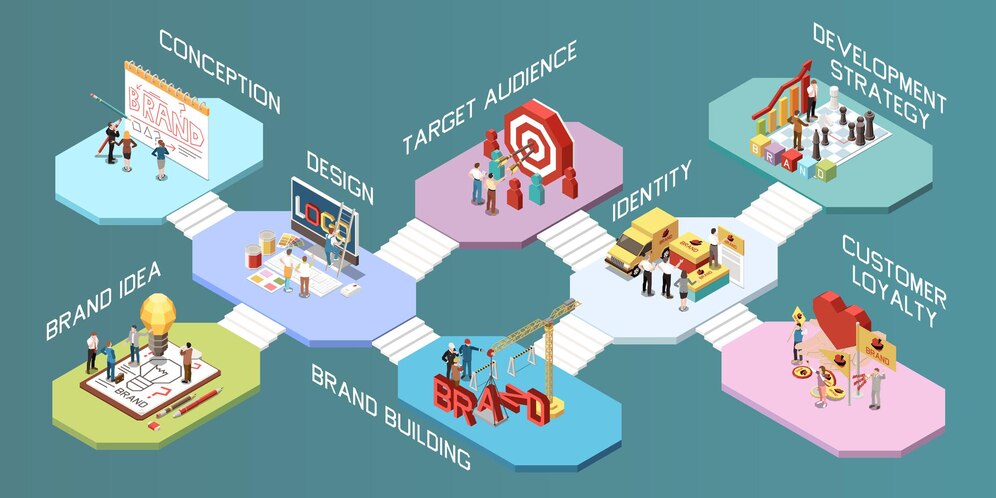Affiliate marketing has become a prevalent business model in the digital age, offering opportunities for individuals and businesses to monetize their online presence. In this article, we’ll delve into the world of affiliate marketing, exploring its fundamentals, benefits, challenges, and prospects.
Whether you’re a seasoned marketer or a novice entrepreneur, understanding affiliate marketing can open doors to new revenue streams and business growth.
Understanding Affiliate Marketing
Affiliate marketing is a performance-based marketing strategy where businesses reward affiliates for driving traffic or sales to their website through the affiliate’s marketing efforts.
It operates on a commission basis, with affiliates earning a percentage of the revenue generated from the sales they facilitate.
This symbiotic relationship benefits both merchants, who gain increased exposure and sales, and affiliates, who earn passive income by promoting products or services they believe in.
How Affiliate Marketing Works
The affiliate marketing process typically involves three primary parties: the merchant, the affiliate, and the consumer. Merchants are businesses or individuals who have products or services to sell.
Affiliates, also known as publishers or partners, promote these products or services through various marketing channels, such as websites, social media, or email newsletters.
When a consumer makes a purchase or completes a desired action, such as signing up for a newsletter or filling out a contact form, the affiliate earns a commission.
Benefits of Affiliate Marketing

One of the key advantages of affiliate marketing is its cost-effectiveness. Unlike traditional advertising methods that require upfront investment with no guaranteed results, affiliate marketing operates on a pay-for-performance model.
Merchants only pay commissions when desired actions are completed, such as a sale or a lead, making it a highly efficient and measurable marketing strategy.
Additionally, affiliate marketing offers scalability, allowing merchants to reach a broader audience and expand their customer base without significant overhead costs.
Challenges in Affiliate Marketing

While affiliate marketing offers numerous benefits, it also presents challenges that affiliates and merchants must navigate. One common challenge is the saturation of certain niches, where competition among affiliates can be fierce.
Additionally, affiliates may encounter issues such as fraudulent activities, such as click fraud or fake leads, which can negatively impact their earnings.
Compliance with regulations and ethical guidelines is another challenge, as affiliates must ensure that their promotional tactics are transparent and compliant with industry standards.
Tips for Success
To succeed in affiliate marketing, affiliates must focus on creating high-quality content that resonates with their target audience. This includes conducting thorough research to understand their audience’s needs and preferences, selecting profitable niches, and choosing reputable merchants with attractive commission structures.
Effective promotion strategies, such as search engine optimization (SEO), social media marketing, and email marketing, can help affiliates drive targeted traffic to their affiliate links and maximize their earning potential.
Common Mistakes to Avoid
In the competitive landscape of affiliate marketing, certain mistakes can hinder an affiliate’s success. One common pitfall is neglecting to track and analyze performance metrics, such as click-through rates and conversion rates, which can provide valuable insights into the effectiveness of marketing campaigns.
Another mistake is relying on spammy or unethical promotion methods, such as keyword stuffing or deceptive advertising, which can damage the affiliate’s reputation and alienate its audience.
Future Trends
Looking ahead, the future of affiliates is ripe with innovation and opportunity. Advancements in technology, such as artificial intelligence (AI) and machine learning, are revolutionizing the way affiliate marketers target and engage with consumers.
Influencer partnerships are also gaining traction, as brands collaborate with social media influencers and content creators to reach new audiences and drive sales. Additionally, emerging platforms and channels, such as voice search and live streaming, are reshaping the affiliate landscape, offering new avenues for affiliate promotion and monetization.
Conclusion
In conclusion, marketing offers a lucrative opportunity for individuals and businesses to monetize their online presence and generate passive income.
By understanding the fundamentals of marketing, adopting effective promotion strategies, and staying abreast of industry trends, affiliates can maximize their earning potential and build sustainable revenue streams.
Whether you’re a seasoned marketer or a beginner entrepreneur, an affiliate holds the promise of financial freedom and business success.
FAQs

-
What is affiliate marketing?
- Affiliate is a performance-based marketing strategy where businesses reward affiliates for driving traffic or sales to their website through the affiliate’s marketing efforts.
-
How do affiliates earn money?
- Affiliates earn money through commissions earned from the sales or actions generated through their affiliate links.
-
Are there any costs associated with becoming an affiliate?
- While becoming an affiliate is typically free, affiliates may incur costs associated with setting up and promoting their campaigns, such as website hosting or advertising fees.
-
Is affiliate suitable for beginners?
- Yes, marketing can be suitable for beginners, provided they are willing to invest time and effort into learning the necessary skills and strategies for success.
-
Can anyone become an affiliate marketer?
- Yes, anyone with an online presence and a willingness to learn can become an affiliate marketer. However, success in marketing requires dedication, persistence, and a commitment to delivering value to both merchants and consumers.
-
You’ll also like this:
Must visit the home page:




